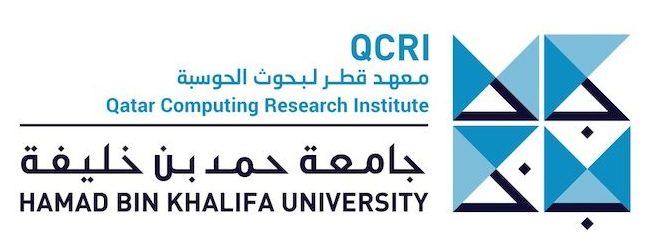Date: 1-2 April, 2019
Location: HBKU Research Complex, Multipurpose Room
Introduction
The purpose of this symposium is to bring together researchers, practitioners, students, and industry experts in the fields of machine learning, data mining, and related areas to present recent advances, to discuss open research questions, and to bridge the gap between data analytics research and industry needs on certain concrete problems.
The MLDAS symposium will serve as a platform for exchange of ideas, identification of important and challenging applications, and discovery of possible synergies.
We will address the topics of interest through both invited and contributed talks describing (1) research ideas, (2) new challenges, (3) mature research and (4) practical results. The symposium program will consist of presentations by invited speakers of both industry and academia, and by the authors of the papers submitted to the symposium. In addition, we will have a panel discussion to identify important research problems and applications.
Submissions
We would like to invite authors to send in contributed submissions – FULL papers or POSITION papers – on any of the topics of interest of the symposium: machine learning, data mining, applied machine learning techniques, data analytics solutions.
Submissions to MLDAS 2019 are due by March 1, 2019 at 11:59 PM Pacific Standard Time.
The submissions page is here.
Registration
Registration for MLDAS 2019 is open.
Researchers, students, and practitioners interested in attending the symposium are invited to register for the symposium by sending an e-mail to registration@mldas.org by March 27, 2019.
The e-mail should include the name, affiliation (institution and address), website (if available) and a brief statement of interest describing the reasons for attending the symposium. For example: “I would like to attend MLDAS 2019 because my interests are in health informatics and I would like to apply machine learning techniques on the data that we have available.”
The attendance to the symposium is limited to 120 attendees and registration requests received after March 25, 2019 cannot be guaranteed.
Organization
MLDAS is organized by the Qatar Computing Research Institute (QCRI) and by The Boeing Company.
Chairs
MLDAS is co-chaired by Sanjay Chawla (QCRI), Dragos Margineantu (Boeing Research & Technology) and Zoi Kaoudi (QCRI).
Please click here to contact the MLDAS co-chairs.
AGENDA
Day 1
07:30: Registration & Coffee
08:05 – 10:00: Session 1
- 08:05 – 08:30: Welcome and Opening Remarks
- 08:30 – 09:15: How the periodic table got built up? [slides]
- Shri Kulkarni | California Institute of Technology
- 09:15- 10:00: Robust Learning Ideas for AI Engineering
- Dragos Margineantu | Boeing
10:00 – 10:30: Coffee Break
10:30 – 12:00: Session 2
- 10:30 – 11:15: Neuromorphic Computing Chips for AI at the Edge [slides]
- Ben Abdallah Abderazek | University of Aizu
- 11:15 – 11:35: Using Advertising Data to Model Migration, Poverty and Digital Gender Gaps [slides]
- Ingmar Weber | QCRI
- 11:35 – 12:00: Assisted Excitation of Activations: A Learning Technique to Improve Object Detectors [slides]
- Amin Sadeghi | University of Tehran
- Amin Sadeghi | University of Tehran
12:00 – 13:30: Lunch Break
13:30 – 15:00: Session 3
- 13:30 – 14:15: Unsupervised Video Object Segmentation for Deep Reinforcement Learning [slides]
- Pascal Poupart | University of Waterloo
- 14:15 – 15:00: Towards verifying neural autonomous systems [slides]
- Alessio Lomuscio | Imperial College London
15:00 – 15:30: Coffee Break
15:30 – 17:00: Session 4
- 15:30 – 16:15: Deep Learning in Julia [slides]
- Deniz Yuret | Koç University
- 16:15 – 16:35: Detecting Phishing Domains using Certificate Transparency
- Mashael Al-Sabah | QCRI
- 16:35 – 17:00: Hack me if you can: A rule mining-based advanced persistent threats detection system.
- Sidahmed Benabderrahmane | University of Edinburgh
Day 2
08:05 – 10:00: Session 1
- 08:05 – 08:50: Developing data-driven machine learning techniques to address biomedical classification problems: applications and challenges
- Jiangning Song | Monash University
- 08:50 – 9:35 Analysing GPS Trajectory Data [slides]
- Dimitris Gunopoulos | University of Athens
- 9:35 – 10:00 The Best of Both Worlds: Ensuring Selective Privacy with Performance in a Collaborative Filtering Framework
- Manoj Reddy | UCLA
10:00 – 10:30: Coffee Break
10:30 – 12:00: Session 2
- 10:30 – 10:50: Efficient Machine Learning Approach to Capture Genetic Correlation
- Halima Bensmail | QCRI
- 10:50 – 12:00: PANEL: “Learning from the past: how to avoid the next AI-winter”
12:00 – 13:30: Lunch Break
For more information about the different talks, click here.
SPEAKERS

Halima Bensmail
Associate Professor / Principal Scientist, Data Analytics, QCRI
Shrinivanas Kulkarni
George Ellery Hale Professor of Astronomy, Caltech
Alessio Lomuscio
Professor, Department of Computing at Imperial College London, UK
Mohammad Amin Sadeghi
Assistant Professor, ECE, University of Tehran
Ingmar Weber
Research Director, Social Computing, QCRI
Mashael Al-Sabah
Scientist, Cyber Security, QCRI












